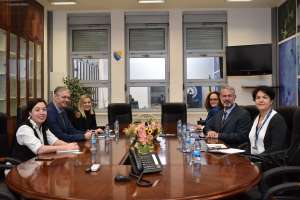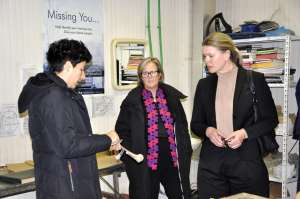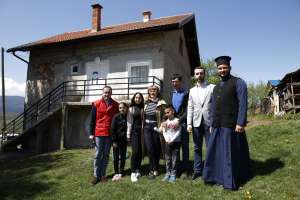THE HAGUE/SARAJEVO, March 6 (FENA) - Regional cooperation and a sustained commitment by governments to move forward with their respective missing persons strategies are key to finding those who are still missing from the conflict in the former Yugoslavia, Kathryne Bomberger, the Director-General of the International Commission on Missing Persons (ICMP), wrote in an article published today at Balkan Insight web portal.
Ms. Bomberger stressed that while 28,000 people have been accounted for, 12,000 are still missing, and she commended the progress that is being made to develop and implement multilateral cooperation, highlighting as “a significant step” the Joint Declaration signed in London in June 2018 by heads of government from the region, renewing their commitment to cooperate in the effort to account for those who are still missing, the ICMP reported.
The Joint Declaration was followed by the signing of a Framework Plan last November, at ICMP headquarters in The Hague, by representatives of Bosnia and Herzegovina, Croatia, Kosovo, Montenegro and Serbia, who formally undertook to work together as the regional Missing Persons Group (MPG). The MPG held successful consultations in Belgrade in February, and is establishing a Regional Database that will facilitate the exchange of information on missing persons’ cases.
Ms. Bomberger, who is in the region this week for talks with heads of government and senior officials involved in the issue of missing persons, wrote that that cooperation rests on three pillars. “The first is the operational need to share information – as it is not uncommon that clandestine gravesites are located in one country, families of the missing are in another, and data pertinent to the search is in a third. The second is the profound solidarity that exists among families of the missing across states and across communities, as those who have shared the harrowing experience of losing a loved one have a common bond. The third is the application of a law-based, non-discriminatory approach that includes all stakeholders in the process.”
She pointed out that “families of the missing do not seek the support of the authorities as an indulgence but as a right: governments have a statutory obligation under international and domestic law to do everything possible to account for the missing and to uphold the right of survivors to truth, justice and reparations.”
She also stressed that despite the passage of time, “the introduction of improved investigative and forensic techniques mean that it is possible to locate clandestine graves and identify the people buried in them, even after the passage of more than two decades.”
(FENA) S. R.












